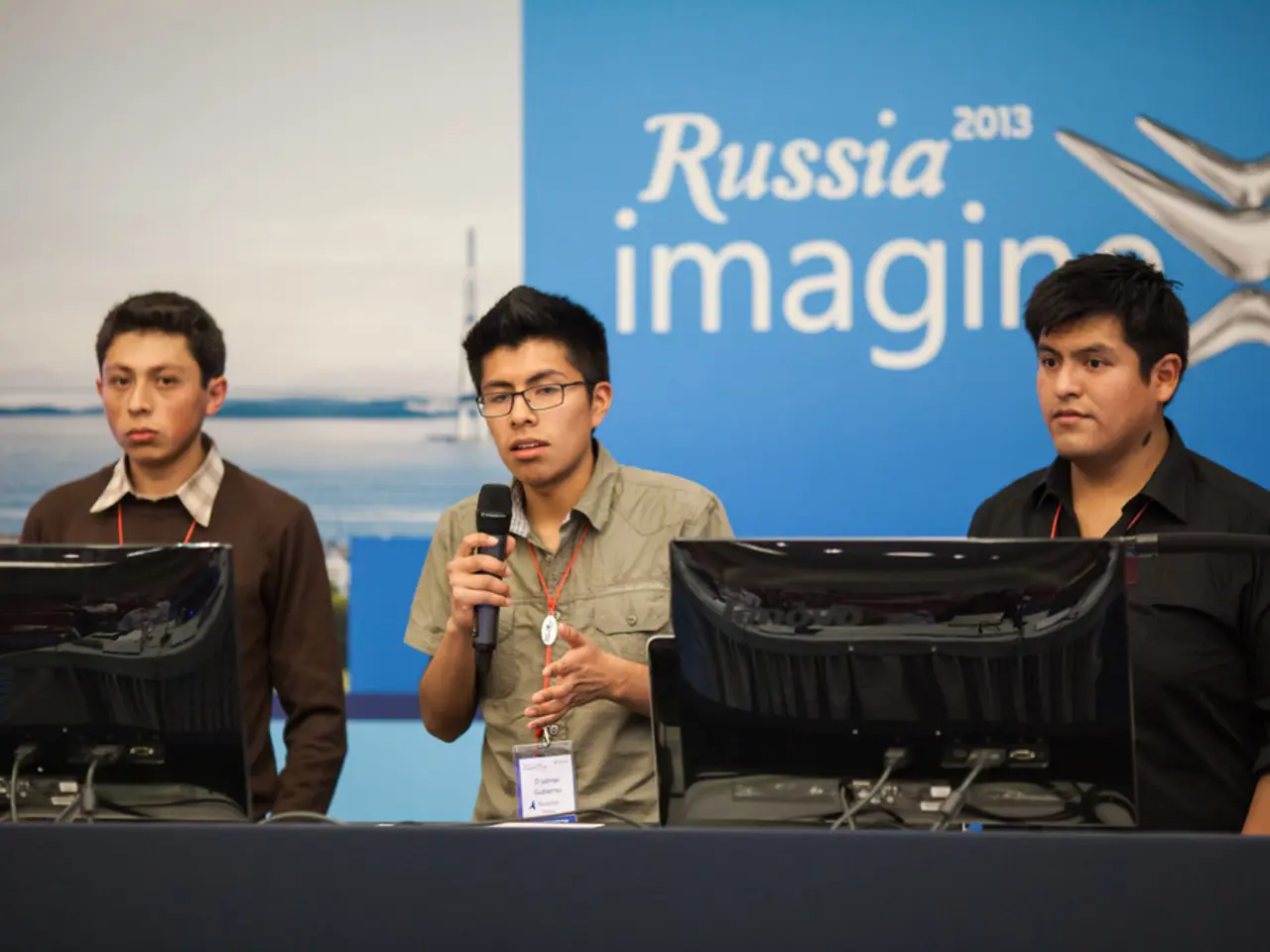Escalating Conflict in Ukraine: Kremlin Firmly Opposes NATO Soldiers as Peacekeeping Forces amid Intensifying Battles in Major Regions
In the ongoing conflict between Ukraine and Russia, President Volodymyr Zelenskyy continues to lead Ukraine's efforts. The past week has seen a series of significant developments.
Ukrainian strikes on Russian oil refineries have disrupted at least 17% of Russia's refining capacity, marking a significant blow to Moscow's war economy. Meanwhile, Ukrainian partisan groups have been disrupting Russian logistics and military operations in occupied territories, adding to Russia's woes.
Ukraine's air force reported downing 74 of 95 drones launched by Russia this week, indicating a successful counter-offensive. The Ukrainian armed forces general staff claims that Zaporizke remains under Ukrainian control, despite ongoing "active hostilities" near Novohryhorivka.
Russia's defense ministry released images it claims show troops inside Zaporizke, a contested city in eastern Ukraine. However, Ukraine maintains its control over the area.
Kremlin spokesperson Dmitry Peskov acknowledged the importance of US efforts to broker peace in Ukraine, but criticized European proposals for security guarantees for Ukraine. Peskov emphasized Moscow's longstanding position against NATO forces in the country. He also stated that any high-level peace talks with Kyiv would need thorough preparation to be effective.
The Kremlin has dismissed the idea of NATO troops being deployed in Ukraine as part of any peace settlement. US President Donald Trump commented on the conflict, stressing that economic sanctions could be imposed on Russia if a ceasefire is not agreed. Trump highlighted his relationship with Putin, claiming he has the influence to help resolve the crisis and emphasizing the human toll, with "thousands of young people dying every week."
Europe, largely on its own, faces the challenge of organizing and sustaining a credible security commitment to Ukraine amid internal political divisions, strategic doubts, and memories of past peacekeeping failures. With US support under Trump becoming minimal, unreliable, and transactional, Europe is stepping up to the plate.
Russian troops have crossed into the eastern Dnipropetrovsk region of Ukraine, adding a new dimension to the conflict. Amidst these developments, Trump has warned of economic sanctions if a ceasefire is not reached, while Putin is preparing for a trip to China, attending the Shanghai Cooperation Organization (SCO) summit in Tianjin from August 31 to September 1, and visiting Vladivostok on September 5.
Long-range drone strikes have become a central element of Kyiv's strategy to weaken Russia's war economy. Ukrainian forces have successfully countered a Russian penetration east and northeast of Dobropillya, seizing key settlements such as Nove Shakhove and Zapovidne.
However, the conflict has taken a heavy toll on civilians. Two civilians were killed in Donetsk, and 12 others were injured due to Russian drone attacks. Over 2,900 attacks on energy infrastructure have occurred in Ukraine since March 2025 alone, with increasing attacks occurring in summer months typically reserved for relative peace.
As the conflict continues, the international community watches closely, hoping for a peaceful resolution to this devastating war.
Read also:
- Lu Shiow-yen's Challenging Position as Chair of the Chinese Nationalist Party (KMT) Under Scrutiny in Donovan's Analysis
- Enemy Forces Have Taken Ukrainian Prisoner
- BJP Persuaded Delhi Voters That Supporting AAP Was Pointless, According to Pavan K. Varma
- Potential Democratic Contenders for Presidency in 2028 Yet to Exclude Themselves from Race








